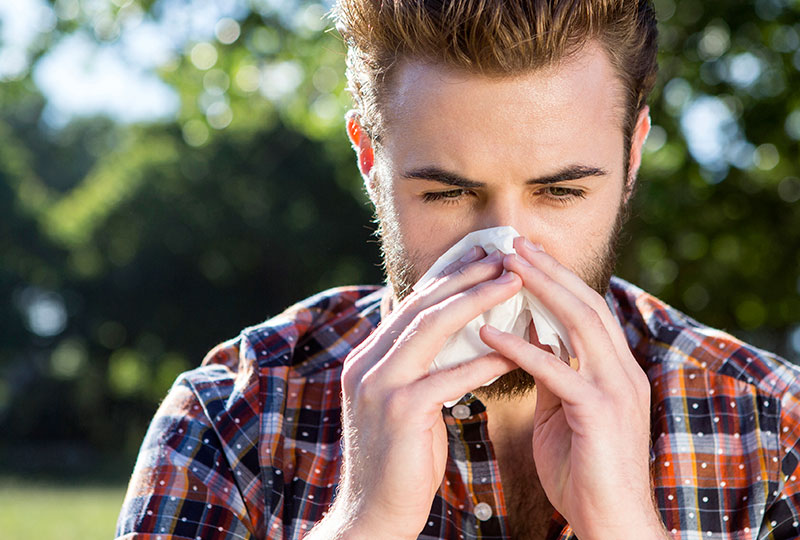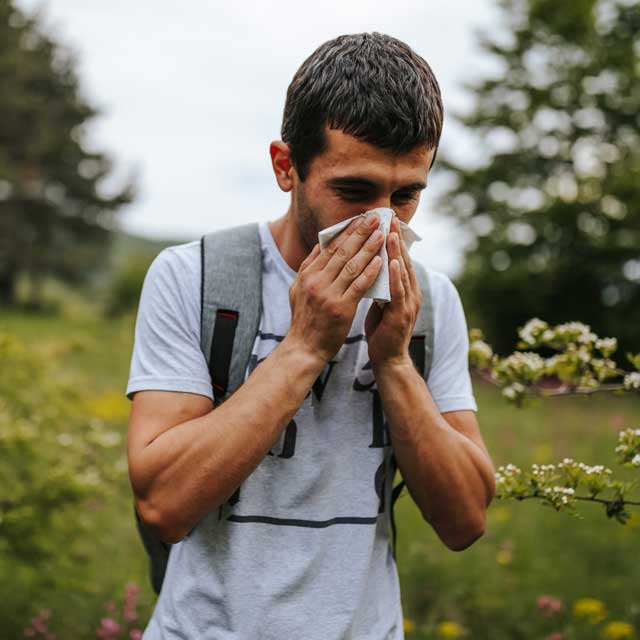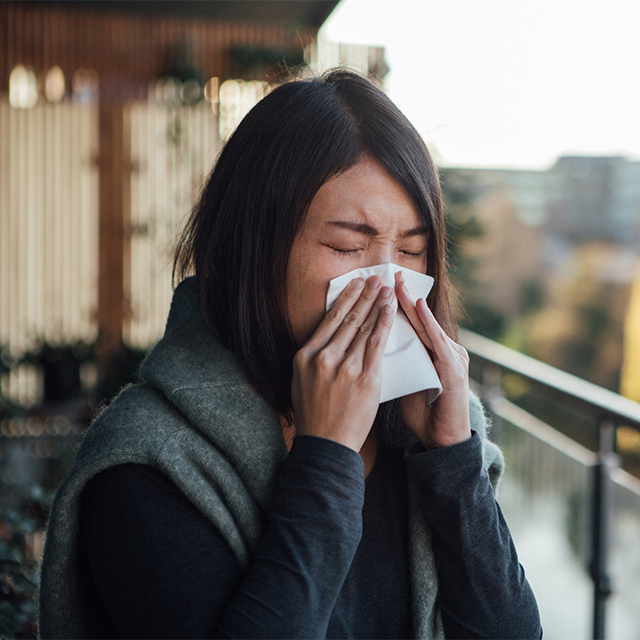These tips will help pollen allergy sufferers spring into tree season with ease.
In parts of the United States, tree and grass pollen season will sneak up on you before you’ve stowed your winter coat. That’s because pollen allergy season can start as early as February and can last through August or even September.
To prepare, we’ve enlisted the help of an allergy specialist to determine what steps we can take to ease pollen allergy symptoms before they start.
“There are three things that you can do, generally speaking, to prevent allergy symptoms,” Dr. Basil M. Kahwash, who sees patients at the Vanderbilt Asthma, Sinus and Allergy Program in Nashville, Tennessee.
Avoid what you are allergic to
“The first and most obvious thing is to avoid what you are allergic to. However, that is not always possible,” Kahwash said. “It is hard to know what you are allergic to without being tested. Also, it is not always easy to avoid breathing in particles you are allergic to, like airborne pollen.”
Take medication for pollen allergy symptoms
The second option is to take medication, whether over-the-counter medications or prescriptions. “Many pills and sprays work better when taken daily, not just at the start of symptoms,” Kahwash said.
Consider if allergy shots are right for you
The third option is to consider allergy shots. “If you’re experiencing allergy symptoms, you can get tested and then receive allergy shots,” Kahwash said. “Allergy shots can represent a long-term solution to allergy problems.”
Additional ways to avoid pollen exposure
Kahwash suggests these additional ways to limit exposure to pollens that cause allergy symptoms:
- Shower at night. Showering and washing hair before bed will help ease nighttime and early-morning pollen allergy symptoms.
- Pamper your pet. Give Fido more frequent baths and brushings because his fur will be loaded with the sneeze-inducing stuff. If you have pet allergies, avoid letting your pets into bed with you. If you are allergic to pollen, your pet may be tracking pollen into the house and into the bed.
- Reassign yard work. To avoid triggering your allergies, designate a household member to be responsible for raking leaves and mowing the lawn (preferably one with mild or no allergies). Both of these activities stir up pollen and mold.
- Do the wash. Wash bedding frequently to remove those stubborn allergy particles that do make it into your room. Avoid hanging clothes or sheets on the line where they can get inundated with pollen. Using a dryer is best.
- Shut the windows. Warmer weather might make you want to throw open the windows at home or roll them down while driving. Consider air conditioning on the bad days instead — just make sure to change HVAC filters frequently to avoid circulating pollen through the house.
- Be alert. Forecast apps can keep you informed about days that might bring on miserable symptoms. Stay inside when pollen counts are high. If you’re planning to exercise outdoors, do so in the afternoon or evening when pollen counts tend to be lower. If your symptoms are severe and long periods of exposure are unavoidable, you may want to wear a pollen mask.

Need help?
Allergies, asthma and sinus problems can produce similar symptoms, ranging from annoying to life-threatening. The Vanderbilt Asthma, Sinus and Allergy experts give you an accurate diagnosis and treatment tailored to you, your symptoms and your life. Vanderbilt Asthma, Sinus and Allergy has five locations in Middle Tennessee: Nashville, Brentwood, Franklin, Gallatin and Lebanon.




